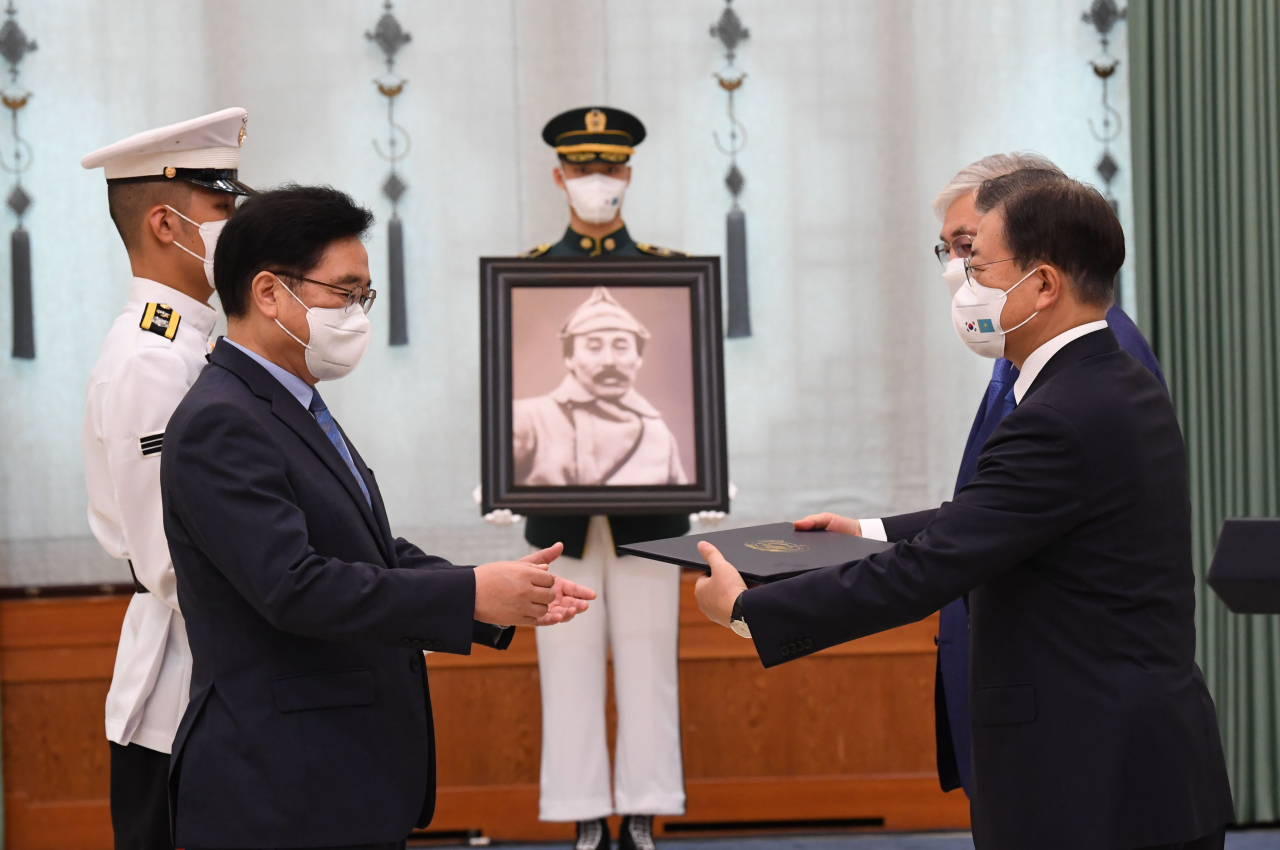 |
South Korean President Moon Jae-in (R) delivers a posthumous medal of honor for Hong Beom-do, a historic independence fighter, to Rep. Woo Won-shik, chairman of a foundation to commemorate the late general, during a ceremony at Cheong Wa Dae in Seoul on Tuesday. (Yonhap) |
South Korea awarded a posthumous medal of honor Tuesday to Hong Beom-do, a historic independence fighter, whose remains returned from Kazakhstan two days earlier.
President Moon Jae-in conferred the Order of Merit for National Foundation on Hong in a ceremony attended by Kazakh President Kassym-Jomart Tokayev at Cheong Wa Dae.
Hong, who served as commander of Korea's independence army, is revered for leading victories in the troops' battles against Japanese forces during the 1910-45 colonial rule, especially the Battle of Fengwudong in Manchuria, China, in 1920. He died in 1943 at the age of 75 in the Kazakh region of Kyzylorda.
In 1962, the South Korean government bestowed on him the Presidential Medal of the Order of Merit for National Foundation.
On the occasion of the 101st anniversary of the Fengwudong battle, Moon presented the top-tier Republic of Korea Medal additionally in order to honor not just Hong's role in the independence fight but also his contribution to raising public awareness on the spirit of independence and love of homeland, according to the presidential office.
Rep. Woo Won-shik, chairman of the Hong Beom-do Commemoration Committee, received the medal on behalf of the late hero.
Hong's life has been made into movies and plays, helping promote a sense of patriotism and unity among South Korean people.
Hong was also a spiritual leader of the community of Koreans forced to migrate to the Central Asian country in 1937 under then Soviet Union leader Joseph Stalin's policy. Many Koreans, including Hong, were relocated from the Soviet Far East at that time. Their descendants still living in Kazakhstan are called Koryoin, totaling around 100,000.
The late general's remains were brought home on Liberation Day.
He will be buried at the national cemetery in Daejeon, 160 kilometers south of Seoul, on Wednesday following an official mourning period. (Yonhap)








![[Today’s K-pop] Blackpink’s Jennie, Lisa invited to Coachella as solo acts](http://res.heraldm.com/phpwas/restmb_idxmake.php?idx=644&simg=/content/image/2024/11/21/20241121050099_0.jpg)